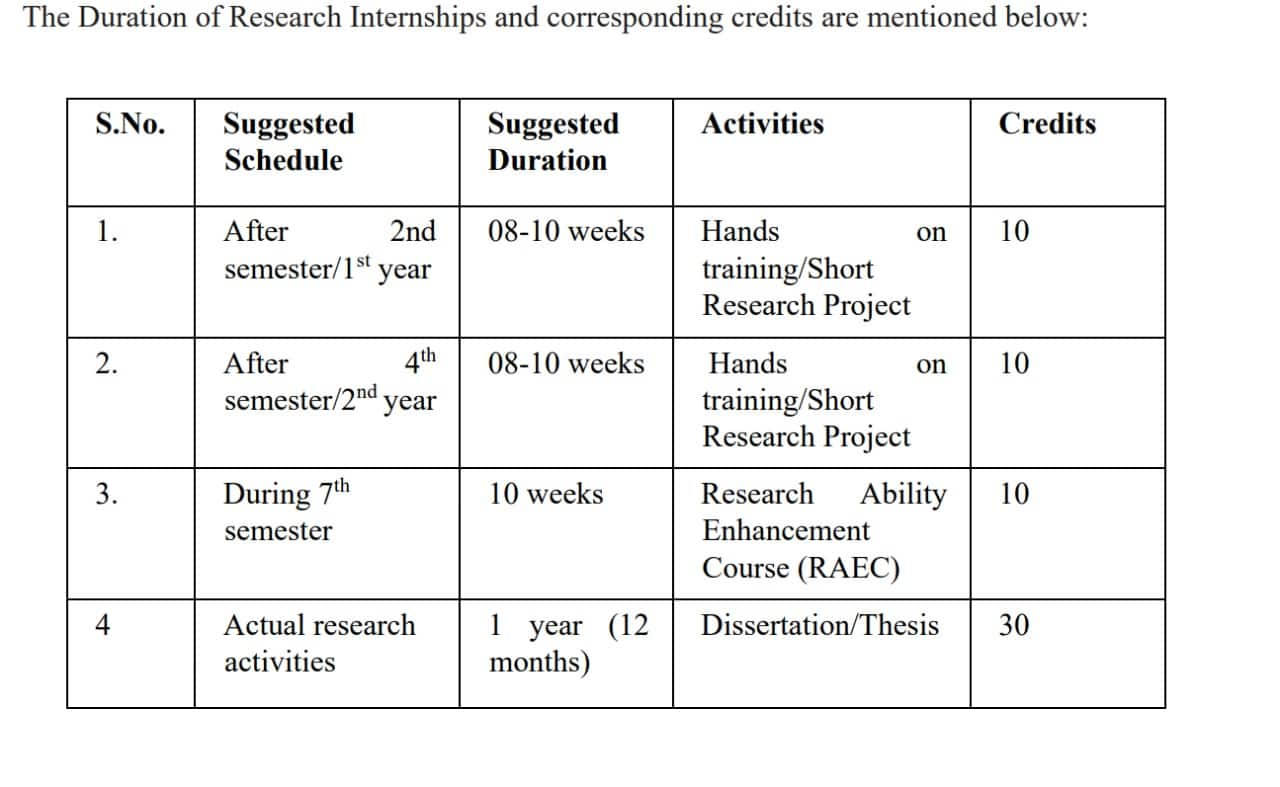UGC paves way for research internships for students in 4-year UG programme
R. Radhika | May 10, 2022 | 08:56 PM IST | 3 mins read
UGC has drafted guidelines for two types of research internships for UG students – one enhances employability, and another builds research skills.

NEW DELHI: To boost hands-on learning in higher educational institutions, the University Grants Commission (UGC) will soon release guidelines for research internships in four-year undergraduate programmes (FYUP). These internships will be compulsory even for those exiting the programme early with a certificate or diploma. Plus, the UGC guidelines will allow students to complete internships in institutions other than the ones they are enrolled in.
The draft “UGC Guidelines for Research Internship with Faculty and Researchers" – Careers360 has a copy – specifies how higher educational institutions and research centres can support interns as a “provider” of research internships. In March, the UGC had directed universities to set up research development cells to execute and monitor the implementation of the proposed guidelines.
The draft UGC guidelines propose two types of research internships – one “enhances employability” and the other “develops research skills” of a student. The guidelines are also in line with National Education Policy (NEP) 2020 which seeks to integrate a research component within the four-year undergraduate programme, or FYUP.
For those who plan to exit the programme early with a certificate or diploma, there will be research training or short project components worth 10 credits each at the end of the first and second years of the FYUP. For those staying on for the full four years, there will be research training in the seventh semester and a year-long research project leading to a thesis or dissertation in the final, fourth year.
Also Read | NEET: CMC Vellore’s batch of 2022 is about to graduate; its size - 3 students
The guidelines are structured to provide supervised “short-term task-oriented placements or
projects” for a defined duration. As per the UGC document, research internship experience can be gained by working with university teachers, scientists, research institutions, industrial research labs, nationally reputed organisations and even experts distinguished in their respective fields.
In September last year, the UGC had urged universities to promote apprenticeship and internship embedded degree programmes. Commission had also sought relevant information from universities already offering such programmes. The draft guidelines are likely to be made public for comment on Thursday.
Internship structure, academic credits
The research internship will account for a minimum of 20 credits and a maximum of 40 out of the total 160 credits in an FYUP.
Students exiting early with a certificate or diploma will have to earn the 20 credits by completing two 10-week internships carrying 10 credits each in the first and second years. For the rest, this round of internships is optional.
 These internships will be compulsory for those exiting the programme early with a certificate or diploma
These internships will be compulsory for those exiting the programme early with a certificate or diploma
For students staying on the full four-year degree programme with research, the research component will account for a total of 40 credits. For this group, universities will be required to design and offer “research ability enhancement courses”, which include analytical tools and techniques, in the seventh semester. The universities will have to design multidisciplinary research programmes as well and students will devote the final 12 months to the project and dissertation.
Also Read| Law Internships: LLB students bemoan low salaries, lack of regulations
A student who wishes to exit after the second or fourth semester will also have to mandatorily intern for eight to 10 weeks and earn 10 credits. Students who are continuing in a programme can also undertake internships for them, it will be optional.
To earn one credit, a student must work must undergo a minimum of 45 hours of engagement in internship activities in a week. This means an engagement of 450 hours for the assigned 10 credits.
Internship application
The UGC proposes to start a centrally managed research internship portal that will help arrange research internships by the HEIs for the students. The technical education regulator, All India Council for Technical Education (AICTE) also runs a similar portal. Interns will be selected by host organisations based on their selection criteria.
During the internship, a mentor will keep track of the activities and performance of interns at the host organisation, based on periodic reports submitted by students. The progress will also reflect on the web portal.
Also Read| Meet the BTech student making internships accessible
The UGC guidelines propose that every intern should be provided with suitable research workspace, ICT facilities, access to library and other shared resources, and paid services, with terms and conditions as applicable to an internal member. Also, the intern should be provided with emergency contact details.
The students will receive an internship certificate on successful completion.
Follow us for the latest education news on colleges and universities, admission, courses, exams, research, education policies, study abroad and more..
To get in touch, write to us at news@careers360.com.